Technical Activity Committee on TEST SYNTHESIS
| TAC Chair: | Scott DAVIDSON, scott.davidson@eng.sun.com |
Test synthesis, loosely defined as “the automated synthesis of hardware testability structures during the process of design, working from high-level description languages,” is attracting more and more practitioners and researchers of DFT as it has been viewed as the “enabling technology of Design-for-Test.”
There is considerable interest in the integration of design and test activities and automatic synthesis of DFT hardware has become necessary in many design environments. However, true integration, seamless and invisible, is not yet reality but the signs are that engineers are beginning to appreciate the need and eager to understand methodology. Also, robust gate-level tools are now available and the user base is increasing. On the other hand, researchers and tool developers are focusing on new techniques and tools working at RTL and behavioral levels.
In addition, test synthesis is beginning to cover more than the traditional stuck-at faults. Work is being done on test structures for delay faults, crosstalk faults, and faults in high-speed I/O. Test synthesis is seen as crucial in holding down the cost of test by enabling the use of lower cost ATE, and in supporting board and system level test by leveraging test structures inserted in ICs.
This technical area has been active with TTTC help since 1993 and has held 9 workshops devoted to the topic of Test Synthesis (1994-2002), one special Test Synthesis seminar at ITC’94 [1] with 13 presentations and a couple of special issues in magazines and journals [2] [3] [6].
This TAC has formed a benchmark subcommittee which has collected a set of realistic benchmark circuits for distribution to researchers and tool developers to drive DFT and test synthesis technology. A special issue of IEEE Design & Test of Computers magazine has been published on benchmarking. [6]
References
- Digest of Papers, “Test Synthesis Seminar,” IEEE International Test Conference, 1994.
- IEEE Design & Test of Computers magazine, “Test Synthesis” Special Issue, ed. Ben Bennetts, Summer 1995.
- Journal of Electronic Testing, Theory and Practice (JETTA), Special Issue on Test Synthesis, ed. Tim Cheng, K.K. Saluja & H.-J Wunderlich, Aug. 1997.
- “Synthesis for Testability,” IEEE Design & Test of Computers magazine Roundtable, December 1990.
- “Test Synthesis,” IEEE Design & Test of Computers magazine Roundtable, Spring 1994.
- IEEE Design & Test of Computers magazine, “Benchmarking” Special Issue, eds. Scott Davidson and Justin Harlow, July-September 2000.
